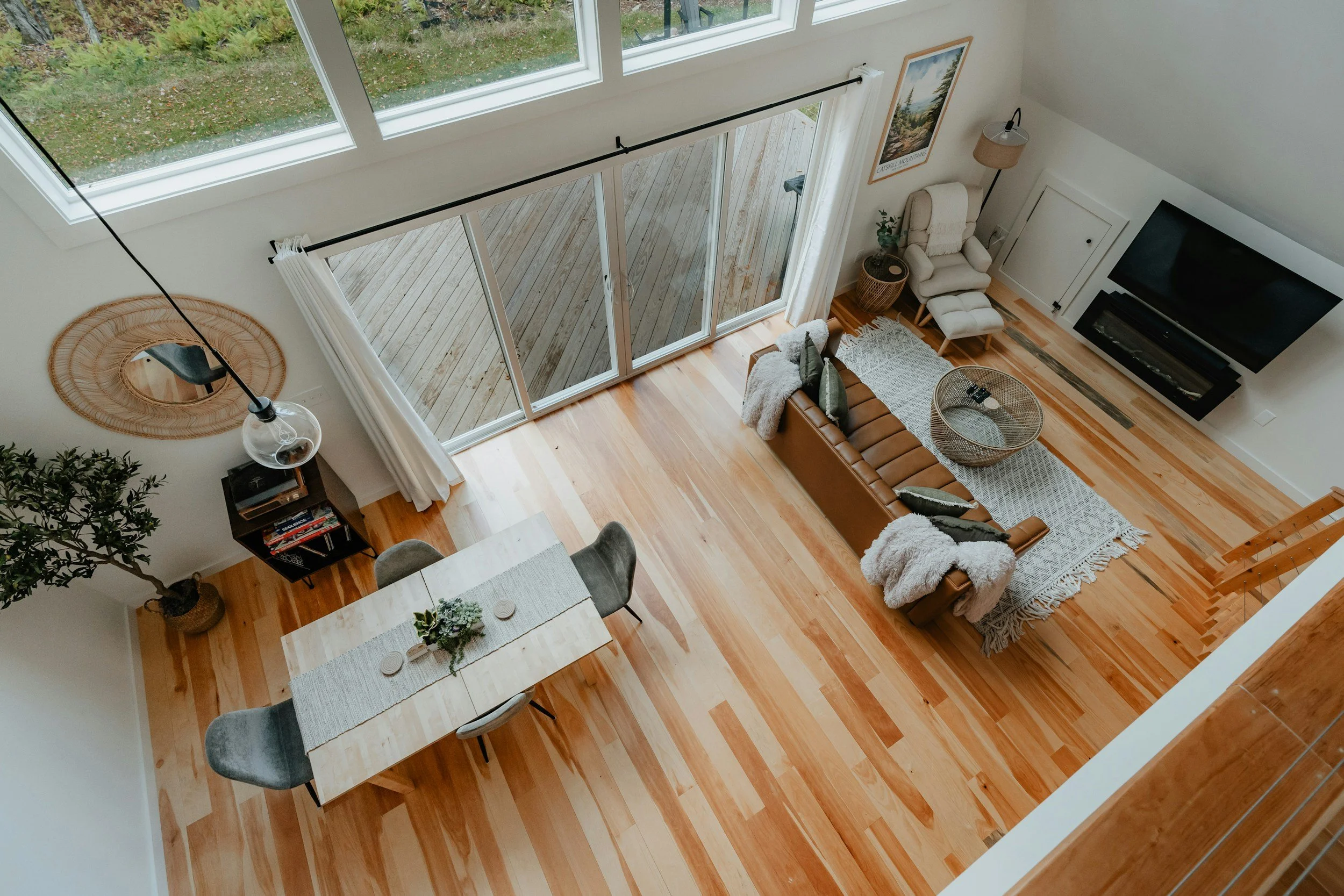Solid Hardwood Vs. Engineered Hardwood
Hardwood flooring is a popular choice for many homeowners. It offers a sleek look while being durable and easy to maintain. This blog will compare and contrast these two types of hardwood flooring so that you can decide which would be the most optimal choice for your home.
Composition
Solid hardwood flooring is made up of exactly what it sounds like: a solid piece of wood that is around ¾ inches in thickness. This flooring type has been used and loved for centuries. It is known for its durability and strength against impacts. The thickness allows the wood to be sanded without having to be replaced for a long time.
Unlike one solid piece of wood, engineered hardwood flooring consists of 5 to 7 different layers. The top layer is a thin layer of wood followed by thicker layers of plywood to make a strong core. The layers allow the wood to be more adaptable to conditions such as moisture and temperature without expansion.
Styles
Solid hardwood can come in different wood types including Oak, Maple, Birch and Hickory. They can come in different widths, textures and colors.
Engineered hardwood offers the same styles and varieties as solid hardwood, but there are even more options with engineered hardwood. It can come in even more colors, specialized planks and textures.
Cost
Upfront, solid hardwood is more expensive than engineered hardwood. Solid hardwood costs around $8-$15 per square foot, whereas engineered hardwood costs around $4-$7 per square foot. It is also important to consider other factors, such as lifespan and maintenance to see which would be a better investment for you.
Lifespan
Solid hardwood is more expensive than engineered hardwood, but the lifespan is longer. Solid hardwood can last anywhere from 30-100 years if maintained properly. Since it is 100% hardwood, it can be sanded and refurbished multiple times, increasing its lifespan.
Engineered hardwood typically lasts 20-30 years and cannot be refurbished as much because of its thinner top layer. However, it does better in humid conditions than solid hardwood, so keep your climate in mind when considering which one is best for you.
Installation
The installation process differs between the two hardwoods. Solid hardwood flooring is usually stapled or nailed on top of a subfloor. It isn’t too hard of a process, but engineered hardwood is easier to install.
Engineered hardwood is easier to install because it already comes with the plywood base connected so you can put it directly on top of concrete. It is also easier to install by yourself, with its click-lock style panels.
Durability
Both types of Idaho Falls hardwood flooring are durable options. They are both scratch-resistant and protective. The major difference is that engineered hardwood is more durable with moisture and heat whereas solid hardwood can start to warp in these conditions.
Which One is Right for You?
After comparing and contrasting these two options, you will be able to determine the one that will fit your needs more. Both are great choices, but choosing the optimal one will greatly benefit your home.






